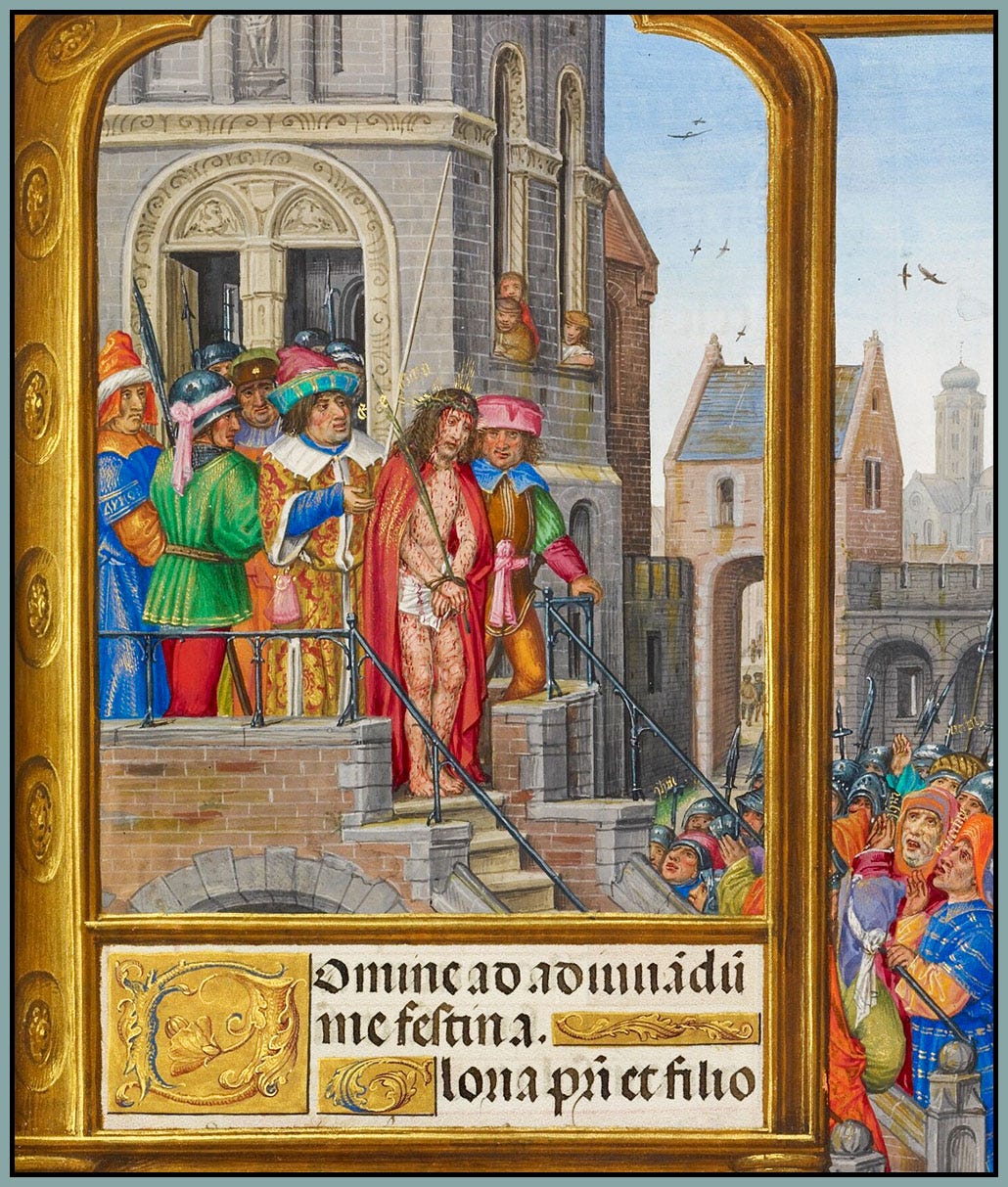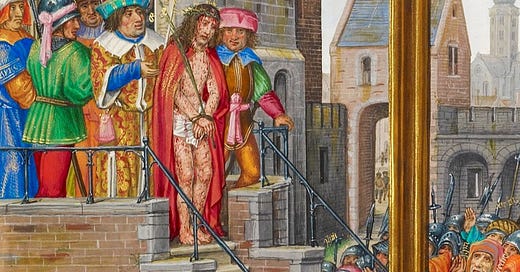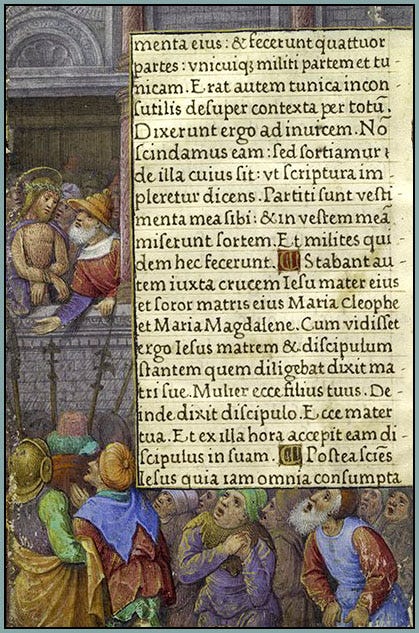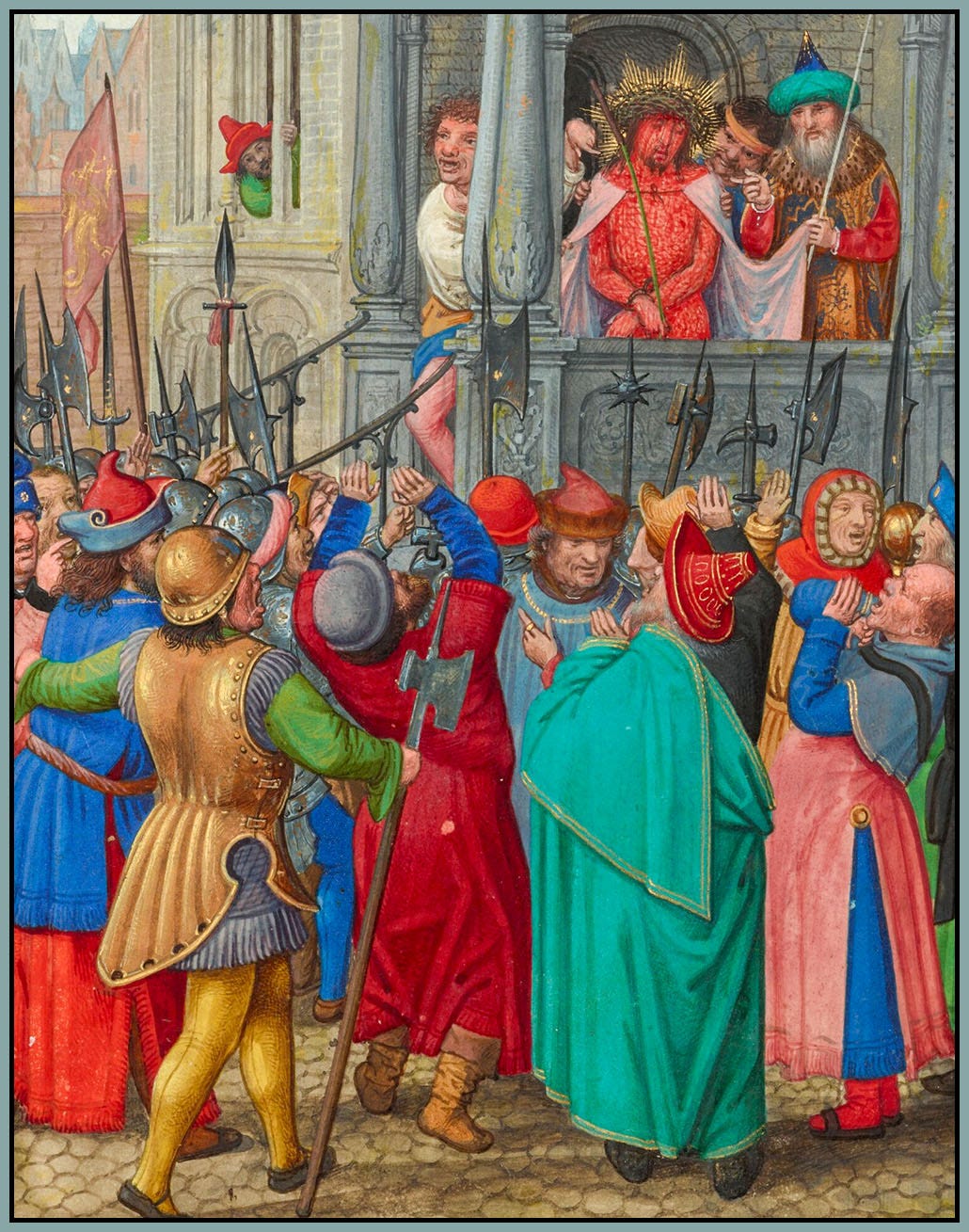Poets are doctors. They certainly cure through the emotions in a powerful way.
—Professor Alberico Gentili (d. 1608)

Though not as widely known as King Lear or Hamlet, Shakespeare’s Othello is a theatrical masterpiece of the highest order. At the center of the story are Iago, a morally monstrous embodiment of hypocrisy, and Othello, an honest warrior on whom the monster feeds. Iago manipulates Othello’s world with heinous, calculated cruelty: that which Othello sees becomes an instrument of torture, his thoughts become a hallucinogenic poison, and his actions only compound the misery. Rather like Adam and Eve in the Garden, Othello was surrounded by goodness, yet his mind was pathologically fixed on the one thing he did not have—and all was a demonic illusion, for in fact he did have it, and had never lost it.
The play ends with a scene of indescribable horror. Othello murders, in hellish fashion, his beautiful and virtuous wife; Iago murders, in hellish fashion, his true and valiant wife; and then Othello murders, in somewhat less hellish fashion, himself.
A work of literature like this raises many questions; here we will consider only one, and it may be the most fundamental and enigmatic of them all: Why does this play exist? From the synopsis above we might conclude that it was written as a form of punishment for remorseless criminals, or as a maniacal attempt to torment and terrorize unsuspecting audiences. And yet, we know that this is not the case. We know that the play was written, if we may use so mundane a term, as entertainment. People voluntarily left the comfort of their homes to go out and see Othello (and a great many other tragic dramas). They actually paid money to see this play. People still pay money, and perhaps travel long distances, to see this play. Is this not utter madness? How can such behavior be accounted for?
The most satisfying answer that we have is also one of the oldest, and it comes from Aristotle.
We will dedicate another week to our discussion of medieval pain, because something crucial has not yet been explored. We began by thinking about the expulsion of pain from the brave new world of modernity and the mysterious union of pleasure and pain in the Christian world of the Middle Ages. Now we must examine something that dwells even deeper in the dark recesses of human nature: the pleasure that is caused by pain—and more specifically, by someone else’s pain. Let us return to, as Thomas Aquinas would say, the Philosopher.
In the Poetics (section 1449b), Aristotle made a brief and seemingly straightforward statement whose effect upon subsequent thought was not at all brief or straightforward. Speaking of dramatic poetry, he describes tragedy as
an imitation of an action that is serious, complete, and of a certain magnitude; in language embellished with each kind of artistic ornament …; in the form of action, not of narrative; through pity and fear effecting the proper purgation of these emotions.
This idea of bringing about “purgation” is expressed in the original Greek by the word katharsis. As is often the case in ancient languages, the word allows for various interpretations, and even in this specific context its precise meaning is elusive. One thing we know for sure is that Aristotle did not invent the term katharsis as a way to convey the notion that it has acquired in the English word “catharsis,” namely, “the process of releasing, and thereby providing relief from, strong or repressed emotions.” In ancient Greek, katharsis denoted cleansing or purification of things as diverse as the cosmos (by fire), food (by cooking), trees (by pruning), language (by explanation), and the human body (by natural detoxification, purgative therapy, or menstruation). This last association is the one most relevant to Aristotle’s theory of theatrical katharsis, which we might summarize as follows:
Human beings have certain emotions that can accumulate and become harmful; to maintain the health of the mind—and, by extension, of the body—we must cleanse ourselves of these emotions. We do so by beholding, through fine art, that which provokes the very emotions we seek to purge.
This summary corresponds nicely with the definition of English “catharsis.” It is, furthermore, the predominant modern interpretation—which I find interesting, because it seems to reflect modernity’s thoroughly negative relationship with pain. In a society that pertinaciously seeks to evade and suppress not only severe suffering but also moderate bodily pain, mild discomforts, and moments of unsettling introspection, katharsis as pain relief makes sense: the “bitter pill” of tragic drama, in which fear and sorrow enter our lives with the force and immediacy of poison hemlock, stimulates a “detoxification” process whereby the psyche releases painful emotions.
I would not say that I disagree with this interpretation, but I do consider it incomplete, and therefore potentially misleading. The problem is that the enduring appeal of tragedy—a phenomenon of immense importance, because it is inseparable from the appeal of fine art in general—cannot reside simply in the purgation of negative emotions. It cannot be entirely a matter of releasing pain by beholding pain. Instead, the pain that we see on stage must do something that perhaps was more intuitively comprehensible for medieval folks than it is for us: this pain must, somehow, give us pleasure.
To gain a bit more insight into Aristotle’s theory, we must consider how his understanding of emotion diverged from that of his teacher, Plato. In Platonic thought, tragic drama is a threat to well-being, because it provokes emotions that are dangerous and makes us more susceptible to these emotions in real life. Aristotle was more sympathetic to human emotions, seeing them as justifiable and potentially reasonable responses to experience. But this leads to a difficulty: if pity and fear are appropriate responses to the sufferings of characters in a tragic play, why should artistic tragedy also purge these emotions? And why are we naturally drawn to tragic drama if it purges emotions that are a healthy and deeply human response to tragic drama?
Aristotle himself provides the outline of an answer, later in the Poetics (section 1453b):
We must not demand of Tragedy any and every kind of pleasure, but only that which is proper to it. And since the pleasure which the poet should afford is that which comes from pity and fear through imitation [mimesis], it is evident that this quality must be impressed upon the incidents.
Almost in passing, Aristotle asserts that there is pleasure to be found in the painful and negative emotions induced by tragic poetry. We might find this unsettling, for it suggests that we derive pleasure from the sufferings of others, but when integrated into the larger system of Aristotelian thought, it is enlightening. Nota bene: Pity and fear produce pleasure “through mimesis.” When Aristotle refers to mimesis (often translated, inadequately, as “imitation”), he is referring to the artistic process as something that carefully reconfigures objective reality into a representation that reveals deeper meaning.
Thus, a tragic drama does not merely “imitate” the betrayals and murders that have plagued the human race since Cain and Abel; if it did, our reaction should be more akin to what we experience when witnessing such horrors in real life: pity, fear, heartache, disgust, fury—without pleasure. The result, rather than emotional release, is emotional trauma.
But when tragic events are reformulated as something like Shakespeare’s Othello—that is, as fine art that respects moral precepts and sound aesthetic principles—the result is simply extraordinary. Our health improves, through emotional purgation and the consequent restoration of balance; our minds are ennobled, as we learn to weave pain and misfortune into the larger tapestry of personal and communal life; and we feel a legitimate and profoundly human pleasure, because by encountering sorrow and fear and pain in this mimetic way, we obtain something that we naturally yearn for: a deeper and more sensitive and more spiritual understanding of ourselves.
To conceive of tragic drama in such terms is to imply that it responds, in an almost singular fashion, to fundamental needs of the human person as a union of body and spirit. It is also, therefore, to imply that a society could scarcely survive, and certainly could not flourish, without it. In the Middle Ages, however, classical drama had ended and Renaissance drama had not yet begun. How did medieval society survive and flourish—in the absence of theatrical tragedy? We will discuss the answer to this question on Tuesday.










Very interesting and thought provoking.
I'm guessing that in the absence of Classical tragedy, medieval society found similar emotion and purgation in Biblical pageantry. This had a foundation in the narrative and sacrificial elements of the Mass, but was opened to more deeply personal experience by the cycles of mystery plays, where the searing human emotion, as well as the comical absurdity, of humanity's direct encounter with the Divine and the sacred was brought home in the full spectrum of human response -- from awe, to tears, to belly-laughs.